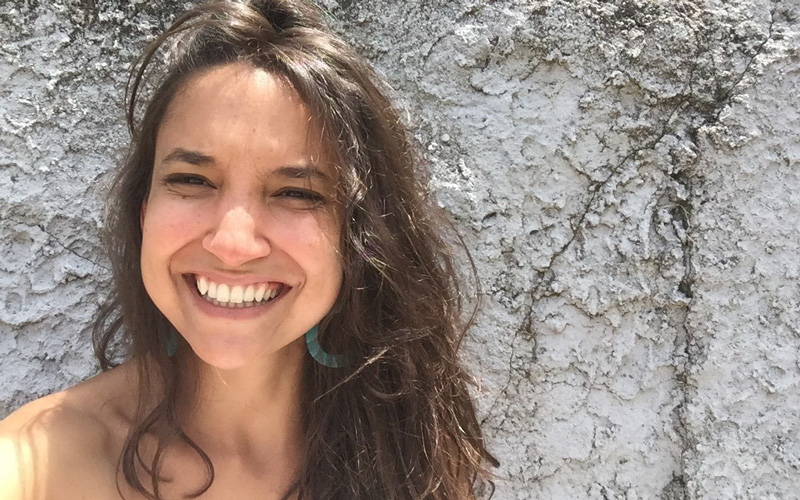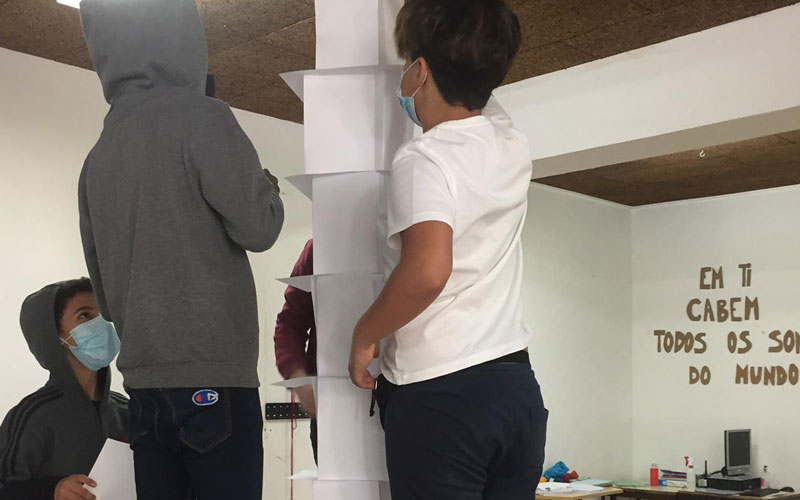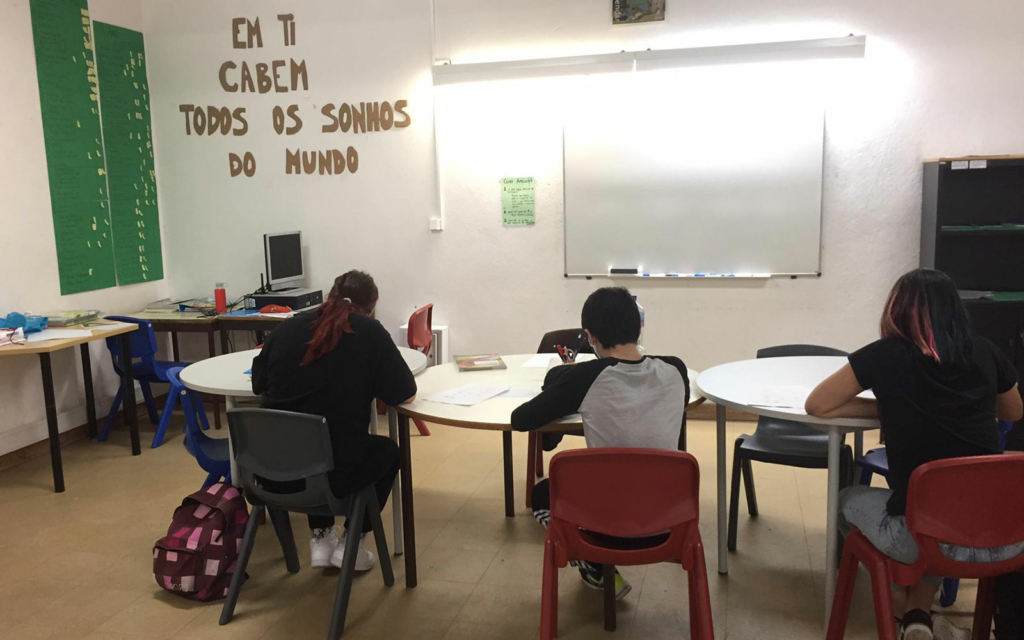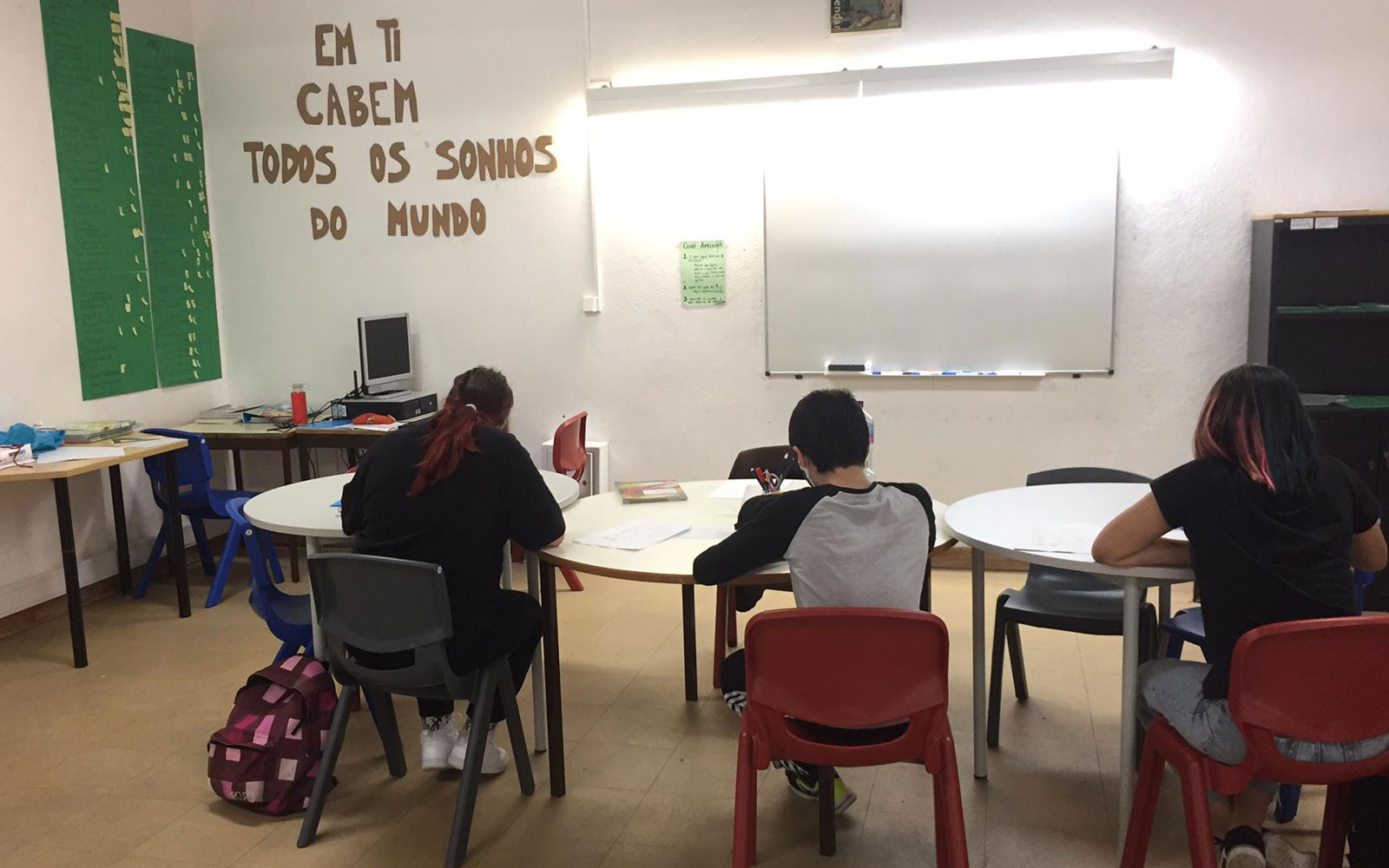Changing the world

Íris, aged 25, lives in Areeiro, Lisbon, and visits EB. 2,3 Soeiro Pereira Gomes Primary School, in Vila Franca de Xira, every week. Here, she teaches mathematics to those who fell behind in this subject due to the pandemic. This interview took place via Zoom but nevertheless still conveyed how this mentor gives off contagious energy through her ever-present smile.
She begins by explaining the reasons that led her to interrupt her exemplary academic and professional record in order to help those most in need. “The theme of education has always greatly attracted me due to its transformative powers”, the mentor explained before adding how “At a time when children are experiencing difficulties and furthermore hindered by the effects of confinement, this made me want to share a little of what I know”.
The mentor accompanies 55 students in this project designed to give them a new perspective on the subjects and on life. “In the first instance, I tried through games and activities that make a bridge between mathematics and the real world, I tried to break down the idea that maths is somehow difficult, dull or unattainable. Naturally, this enables them to look at mathematics from a different perspective and step by step we go about getting from the “I cannot” and the “I don’t want to” to become “Yes I can”. (…), the atmosphere for our sessions is very relaxed and we’re all close and the relationships among the different members keeps on building. We created a space where everyone is different while all are equal, where there is no problem with making mistakes and where we may all go about helping each other.”
A space for autonomy
The mentor believes a place has been established where students feel autonomous and capable. “We have our own room and each student turns up, chooses the topic they want to work on, accesses the study materials on this topic that are there in the room (mostly worksheets but there are a couple of games and a computer as there’s no scope for anything else) and do the exercises. They frequently work together, asking each other for help and I’m just another person in the room for the more difficult doubts. Step-by-step, I also encourage them to search for answers to their questions on the Internet. In this way, they end the project with a higher level of study autonomy, knowing how to study better and with a greater capacity to learn together.”
In the final phase of this project, Íris talks about her own experience and that of the students. “It’s interesting as every day is a day of learning – both for me and for the kids”. The passion for what she does is obvious. Working in the hope of changing the paradigm, even if “just a little”, of the difference between privileged children and those coming from backgrounds with fewer resources.
The fact that their mentor is an accessible person, with a close relationship to the students, helps them to reach further than the classroom environment with its distance to the teacher would otherwise enable. Íris believes that a lot begins in the head and not in the materials and that, very often, due to having been born in less advantaged conditions, these young people do not fully believe in their capabilities.


She refers especially to a female student of Roma ethnic origins with whom she began working at the beginning of this project. “[She] was very demotivated with schools and faced various challenges in life. For example, she did not want to get married yet. We ended up getting to know each other better and there has been evolution over time. She is one of those students who has shown an impressive level of progress. She’s much more motivated and now likes turning up to the sessions in order to learn when, at the beginning, she didn’t even want to attend. Really, she changed her way of looking at life and now sees things in a different way. Now, she thinks “I want to study, I want to learn, I want to be better, I want to become a lawyer – and this is possible””.
A reciprocal learning process
Íris believes this project provides a way for her to convey her own knowledge while simultaneously deepening her learning. “Through GAP, I’m able to meet new people, with different ages, and being in direct contact with education helps in understanding if this is the field I really want to go into”, she explains.
“(…) I usually question myself about things and I did in fact want to understand whether the academic life that I was going for was actually that which I most wanted to do or whether I would like to do something else. Obviously, this contact with the school has ensured I could explore this a bit; precisely because of having this passion for education and for perceiving education as applying this power of transformation and change. Even if not the world, it’s important to transform the lives of some children.”
Despite her enormous attachment to the students and the project, Íris thinks her future options still remain open. “In principle, I’m going to accept the invitation to do research in different areas; the projects that I was invited to join are extremely interesting to me. However, through this experience, I also know that I want to continue to participate in this world, educating and making the difference”.
In one way or another, Íris is an example to be followed. Her commitment to this project is a lesson in hope, humility and sharing. And the proof that it is possible to change the world.

